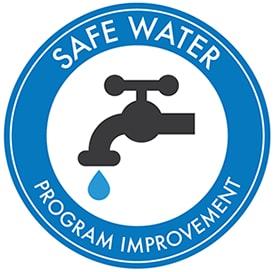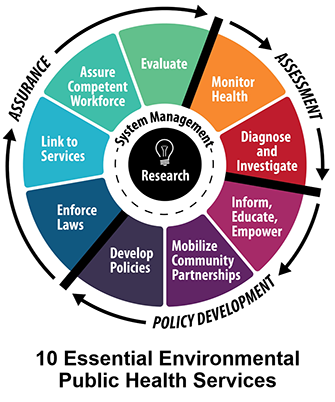Safe Water Program Improvement e-Learning Series (SWPI)
Take CDC’s Safe Water Program Improvement e-Learning Series (SWPI) for safer well water through stronger public health programs.

SWPI helps health department programs strengthen services to people who use wells, cisterns, springs, and other private drinking water systems not covered by the Safe Drinking Water Act. Oversight for these systems vary, but core elements of successful, sustainable programs are similar. SWPI walks through the 10 Essential Environmental Public Health Services and the Environmental Public Health Performance Standards, and provides examples of using them to identify and fill program gaps in these types of drinking water programs.
Get Started Today
- Visit http://lms.southcentralpartnership.org/swpi.php and create an account (or log in if you already have one)
- Enroll in SWPI courses
What Are the Benefits of This Training?
- It’s free and flexible: Take the courses you want, when you want in this online program.
- It’s practical: Improve drinking water in your community by improving your program.
- It’s strategic: Gain experience with the framework used in accreditation of health departments as you apply the 10 Essential Environmental Public Health Services and the Environmental Public Health Performance Standards to your drinking water program.
What Topics Are Addressed?

SWPI includes 9 courses. Take all of them or pick and choose (the first one is required, then take courses in any order, but we recommend taking them in order for the greatest benefit):
- 101 – Introduction: The 10 Essential Environmental Public Health Services and Unregulated Drinking Water Programs
- 102 – Assessment: Monitor Health
- 103 – Assessment: Diagnose and Investigate
- 104 – Policy Development: Inform, Educate, Empower, and Mobilize
- 105 – Policy Development: Policies and Plans
- 106 – Assurance: Laws and Regulations
- 107 – Assurance: Linking People to Services
- 108 – Assurance: Assuring a Competent Workforce
- 109 – Assurance: Evaluation and Research
What Are People Saying?
I plan to…“(u)tilize the 10 Essential services! I had no idea they even existed specifically for the Environmental Health realm of Public Health.”
‐Pilot Tester comment
‐Pilot Tester comment
“This course will allow me to think more on the sources of unregulated drinking water instead of totally focusing on the public sources of water. It will also help me be ready with answers to questions from people using unregulated drinking water sources.”
‐Pilot Tester comment
‐Pilot Tester comment
We tested this course among drinking water and other environmental health staff:
- More than 4 out of 5 identified specific actions they could take in their job as a result of SWPI.
- 9 in 10 said they would recommend SWPI to a colleague.
How Long Does It Take?
For pilot testers, the average time to finish the courses ranged from just over 1 hour for the shortest course to just over 2 hours for the longest.
Who Developed It?
Several groups and individuals worked together to create this training series. CDC’s National Center for Environmental Health collaborated with the National Network of Public Health Institutes, Texas Health Institute, Tulane University, NEHA, and additional subject-matter experts in performance improvement and drinking water.
Did You Know?
- About 1 in 9 American residents get their drinking water from a private well.
- About 1 in 5 sampled private wells had contaminants at levels that could affect health.
Key Terms
10 Essential Environmental Public Health Services – actions to protect and improve environmental public health. These services are adapted from the 10 Essential Public Health Services, a core framework used in voluntary accreditation of health departments.
Environmental Public Health Performance Standards – a set of standards that describe the optimal performance and capacity for environmental public health systems and programs. These standards complement that National Public Health Performance Standards and allow for in-depth assessment of how these systems and programs provide communities with the 10 Essential Environmental Public Health Services.
Want More?
Explore these CDC resources for more information.


































No hay comentarios:
Publicar un comentario